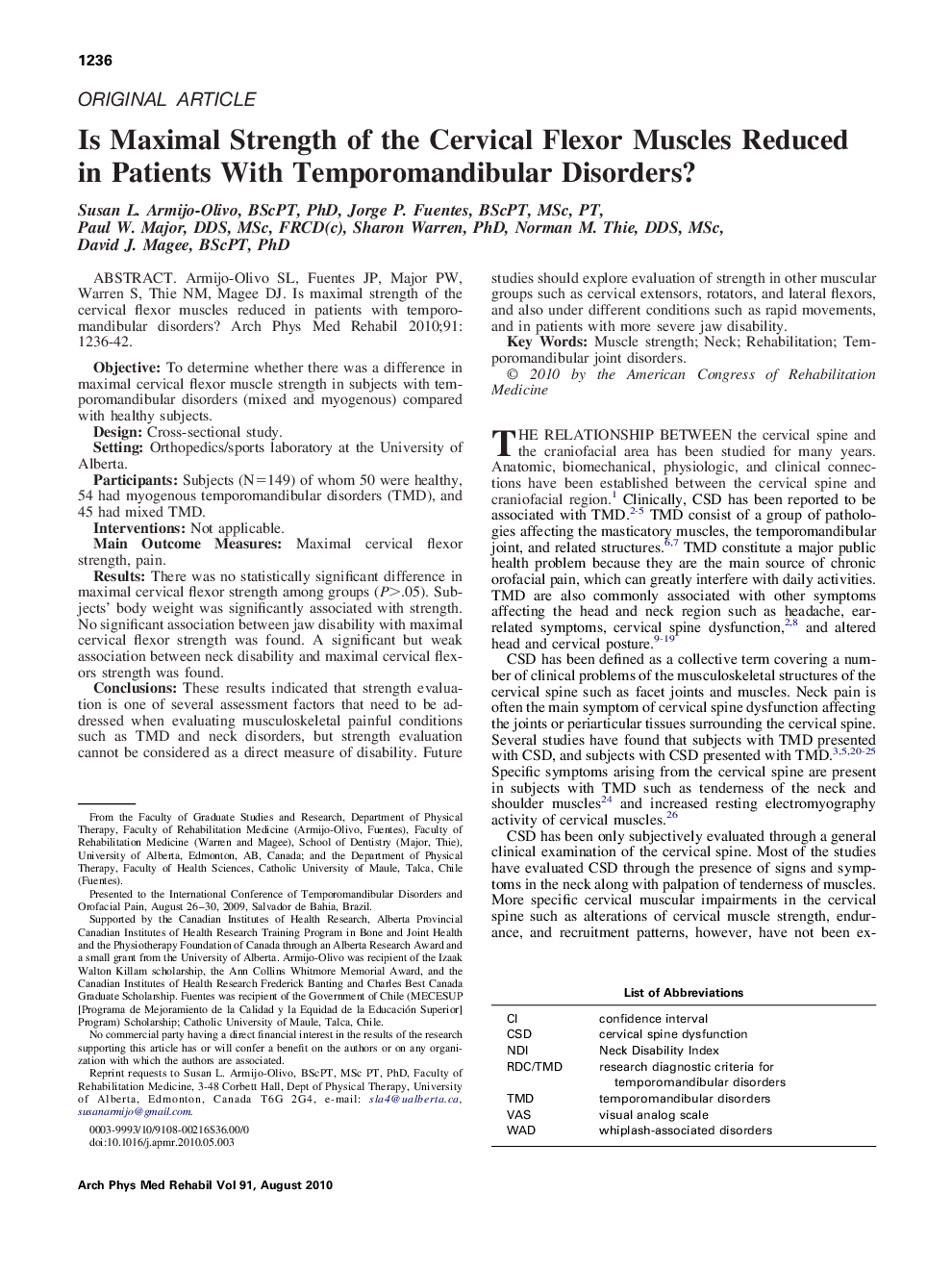| Article ID | Journal | Published Year | Pages | File Type |
|---|---|---|---|---|
| 3450692 | Archives of Physical Medicine and Rehabilitation | 2010 | 7 Pages |
Armijo-Olivo SL, Fuentes JP, Major PW, Warren S, Thie NM, Magee DJ. Is maximal strength of the cervical flexor muscles reduced in patients with temporomandibular disorders?ObjectiveTo determine whether there was a difference in maximal cervical flexor muscle strength in subjects with temporomandibular disorders (mixed and myogenous) compared with healthy subjects.DesignCross-sectional study.SettingOrthopedics/sports laboratory at the University of Alberta.ParticipantsSubjects (N=149) of whom 50 were healthy, 54 had myogenous temporomandibular disorders (TMD), and 45 had mixed TMD.InterventionsNot applicable.Main Outcome MeasuresMaximal cervical flexor strength, pain.ResultsThere was no statistically significant difference in maximal cervical flexor strength among groups (P>.05). Subjects' body weight was significantly associated with strength. No significant association between jaw disability with maximal cervical flexor strength was found. A significant but weak association between neck disability and maximal cervical flexors strength was found.ConclusionsThese results indicated that strength evaluation is one of several assessment factors that need to be addressed when evaluating musculoskeletal painful conditions such as TMD and neck disorders, but strength evaluation cannot be considered as a direct measure of disability. Future studies should explore evaluation of strength in other muscular groups such as cervical extensors, rotators, and lateral flexors, and also under different conditions such as rapid movements, and in patients with more severe jaw disability.
